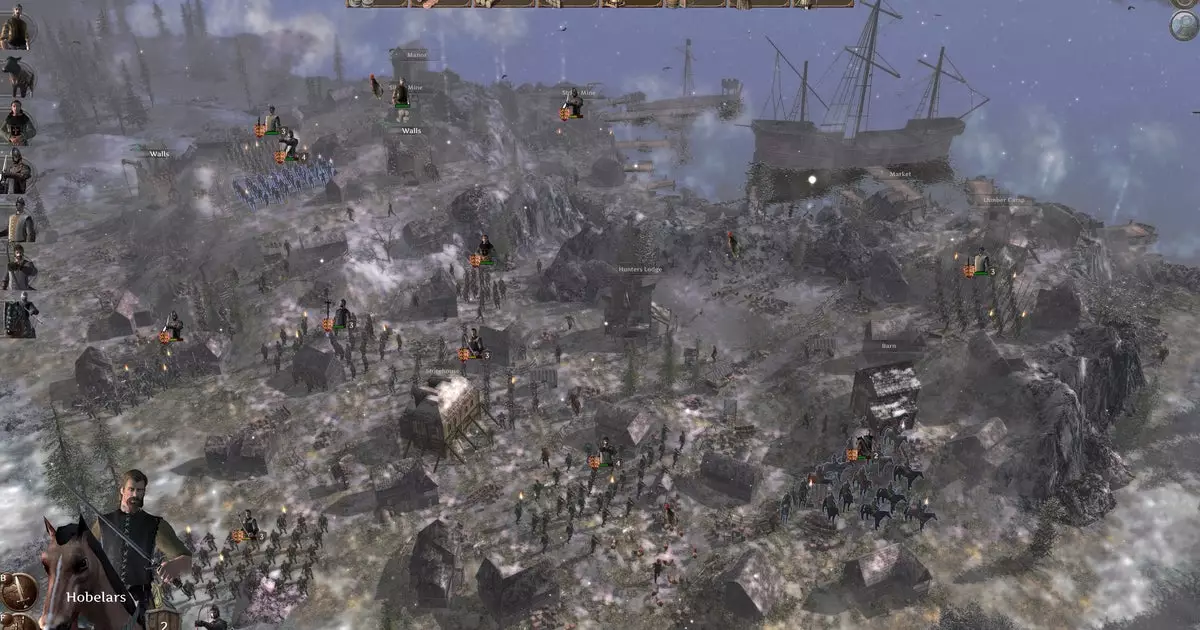The Crusades are a historical phenomenon wrought with complexity and contradiction. These medieval religious wars, spanning nearly two centuries, were initiated by Christian forces with the intent of reclaiming the Holy Land from Muslim rule. Their legacy is not simply confined to historical studies; modern interpretations often hijack these narratives, distilling them into memes that either glorify or vilify the events. This intersection of history and contemporary culture creates a rich tapestry for both academic inquiry and entertainment. In our ever-evolving digital age, video games, particularly those rooted in historical contexts, serve as contemporary vessels through which these storylines can be explored, scrutinized, and understood.
Modern Interpretations and Gaming as a Cultural Lens
The recent release of *Knights Of The Crusades*, a grand strategy game that immerses players in the tumultuous era of the First Crusade, prompts reflection on how digital narratives can influence our perception of history. Players are invited to lead either Christian or Muslim factions—a duality that reflects the continuous debate over morality and justification within these historic conflicts. The game’s mechanics resemble the extensive strategy found in established franchises like *Age of Empires*, yet it offers a reimagined, expansive experience suggestive of a Paradox Interactive title. This juxtaposition is significant: while historical games may not aim to deliver an entirely accurate portrayal, they evoke engagement with the complexities of their narratives.
A captivating aspect of *Knights Of The Crusades* is its portrayal of the consequences of war. While the mechanics may show players raiding hamlets and engaging in overtly aggressive acts, the retroactive glorification raises ethical questions about representation. Are we merely playing out history or distorting it into something suitable for consumption? The game’s focus on “dynamic maps filled with cities, pilgrim routes, shifting alliances, and relentless holy wars” serves to encapsulate not only the chaos of the era but also the intricate social structures at play, begging a deeper analysis of the tactics and motivations behind historical warfare.
The Risk of Reenactment: A Double-Edged Sword
It is disconcerting to witness how the Crusades’ memory can devolve into cosplay for those seeking to romanticize figures like Richard the Lionheart. This allure has seemingly drawn in modern factions who find a sense of validation in regurgitating past glories, often stripping away the moral complexities that encompass war. The quest for control, whether through holy warfare or mere conquest, shines a light on humanity’s propensity for zealotry and conflict, resonating even in today’s geopolitical contexts.
This brings us to an essential critique of titles such as *Knights Of The Crusades*: will they inadvertently fuel an ideological fervor among modern audiences, much like the way the Crusades have been appropriated by contemporary radical groups? The developers’ intent to diversify the portrayal of various cultures, ensuring that each faction feels unique and well-rounded, may serve as a counterbalance to these tendencies. However, the success of such an endeavor depends largely on the approaches taken in storytelling, game mechanics, and the portrayal of moral consequences.
Navigating Historical Complexity Through Interactive Play
There exists a unique opportunity in games like *Knights Of The Crusades* to provide players with a profound experience—one that encourages deeper engagement with the historical contexts that define the era. However, for those like myself who find it daunting to traverse the intricate narratives of strategy titles such as *Crusader Kings*, navigating this historical landscape becomes an overwhelming task. As a player, the call to action lies not just in gameplay, but in seeking to understand the ramifications of historical events and the legacies that continue to shape our world today.
In this era of digital exploration, it is imperative for games to transcend mere entertainment function and take up roles as educational platforms. As one digs deeper into the legacy of the Crusades through interactive play, the hope is that it fosters not just skilled strategists but informed individuals who grasp the multi-layered narratives of conflict, faith, and power that have marked our past. Ultimately, only time—and perhaps a few game updates—will reveal whether *Knights Of The Crusades* accomplishes this ambitious objective.

